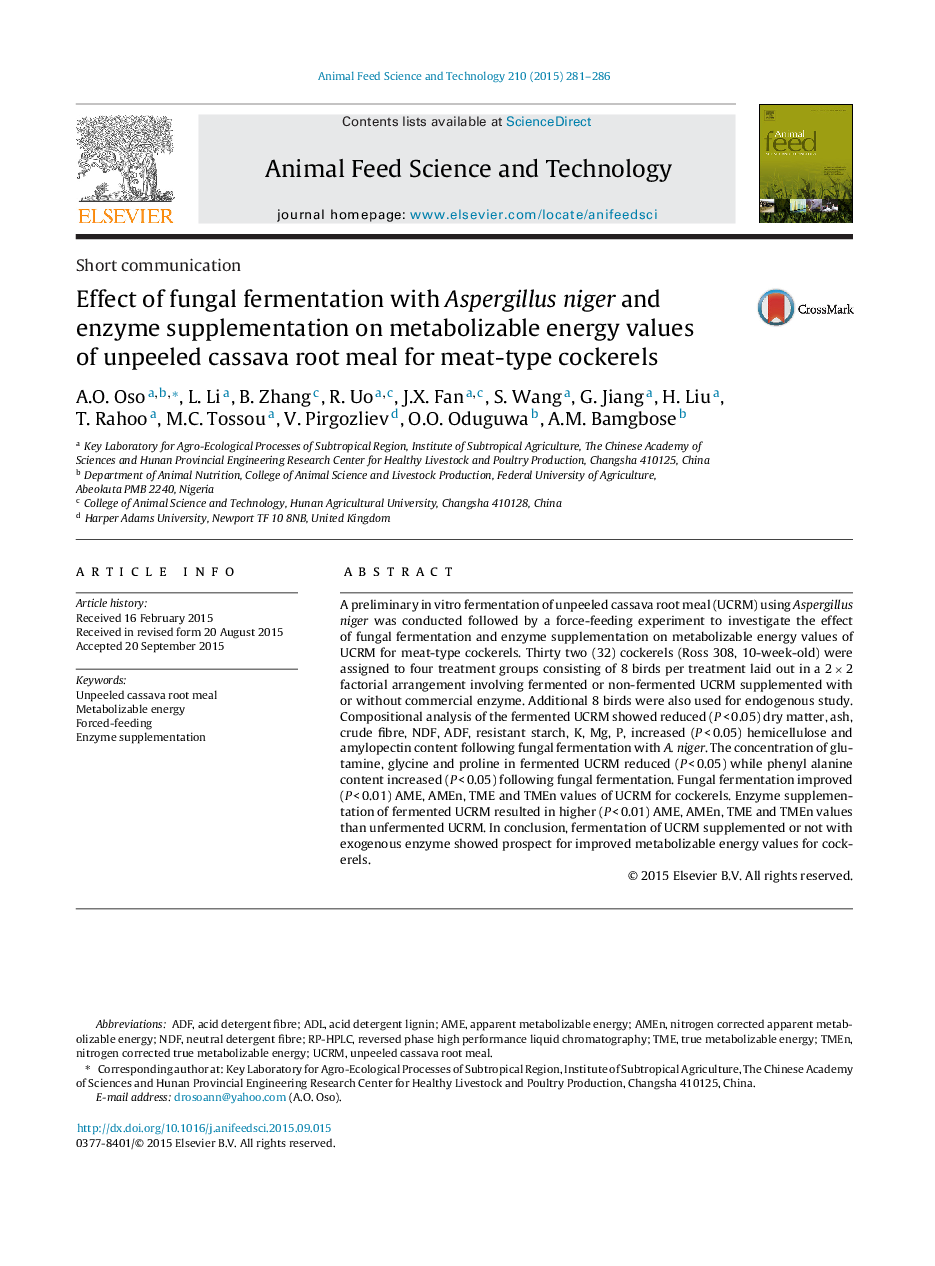| Article ID | Journal | Published Year | Pages | File Type |
|---|---|---|---|---|
| 2419339 | Animal Feed Science and Technology | 2015 | 6 Pages |
•In vitro fermentation of cassava root meal (CRM) using Aspergillus niger was conducted.•This was followed by the determination of ME values by cockerels using gavage method.•Fermentation of CRM resulted in increased amylopectin and phenyl alanine content.•Fungal fermentation increased ME values of CRM for cockerels.•Enzyme-supplementation of fermented CRM improved ME values respect to non-fermented CRM.
A preliminary in vitro fermentation of unpeeled cassava root meal (UCRM) using Aspergillus niger was conducted followed by a force-feeding experiment to investigate the effect of fungal fermentation and enzyme supplementation on metabolizable energy values of UCRM for meat-type cockerels. Thirty two (32) cockerels (Ross 308, 10-week-old) were assigned to four treatment groups consisting of 8 birds per treatment laid out in a 2 × 2 factorial arrangement involving fermented or non-fermented UCRM supplemented with or without commercial enzyme. Additional 8 birds were also used for endogenous study. Compositional analysis of the fermented UCRM showed reduced (P < 0.05) dry matter, ash, crude fibre, NDF, ADF, resistant starch, K, Mg, P, increased (P < 0.05) hemicellulose and amylopectin content following fungal fermentation with A. niger. The concentration of glutamine, glycine and proline in fermented UCRM reduced (P < 0.05) while phenyl alanine content increased (P < 0.05) following fungal fermentation. Fungal fermentation improved (P < 0.01) AME, AMEn, TME and TMEn values of UCRM for cockerels. Enzyme supplementation of fermented UCRM resulted in higher (P < 0.01) AME, AMEn, TME and TMEn values than unfermented UCRM. In conclusion, fermentation of UCRM supplemented or not with exogenous enzyme showed prospect for improved metabolizable energy values for cockerels.
